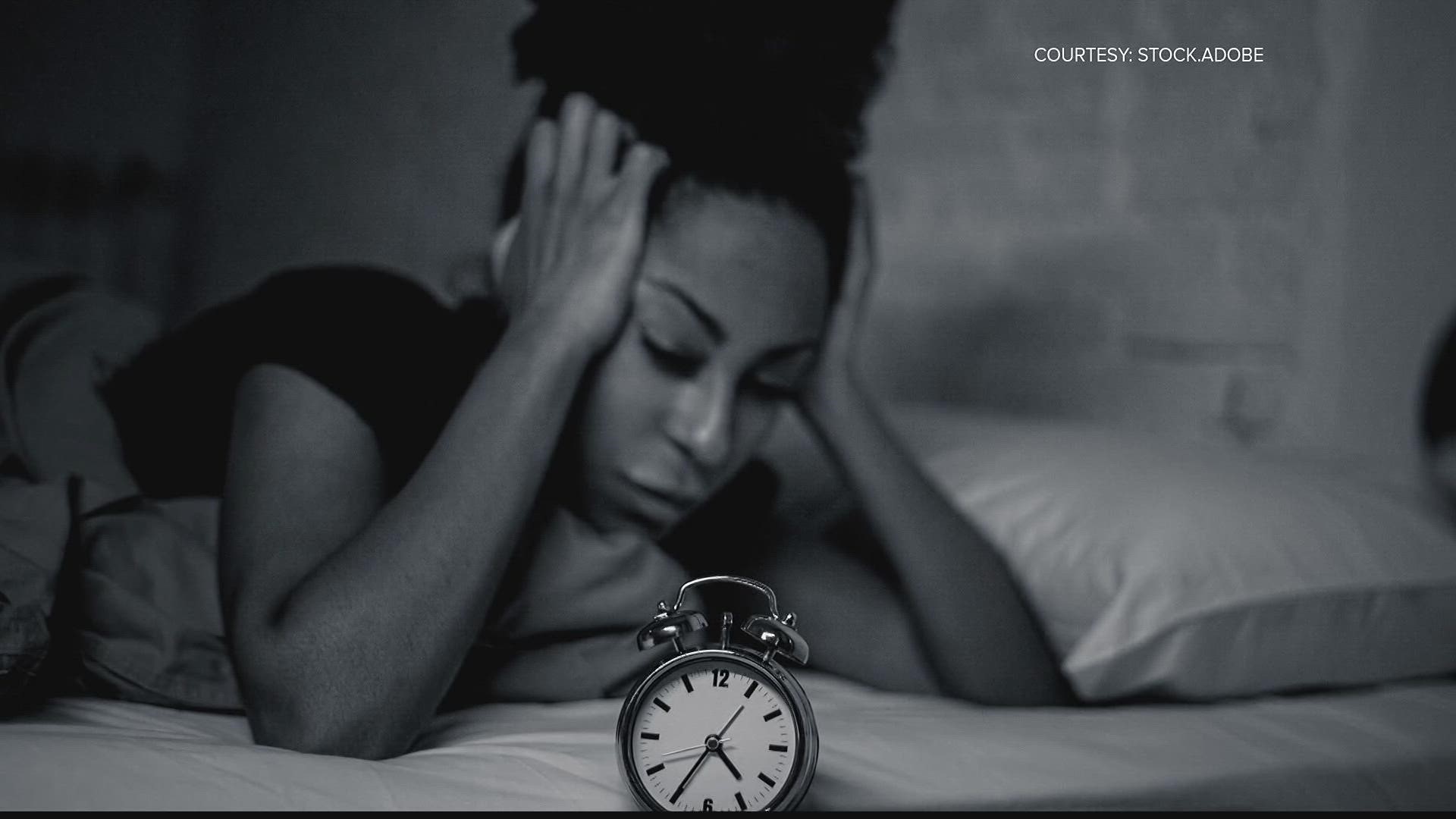ATLANTA — Daylight saving is back, costing us an hour of sleep that will be hard to replace.
When it comes to getting a good night’s sleep, the math can get complicated. If you miss a couple of hours one night, you might not feel any better after a couple of extra hours the next.
Think of your sleep as a bank account that needs a deposit of seven to nine hours each night. Deposit less for even one night and you go into debt.
Dr. Nancy Collop of Emory Healthcare’s Sleep Center tells us that unlike a bank account, you can’t erase debt with one quick deposit.
“You're going to catch up after time,” said Dr. Collop. “But you just can't catch up the next night. It's going to usually take a couple of days to kind of catch up even after you've been sleep deprived.”
A study out of Japan concluded some people may need as much as four days of adequate sleep to make up for just one lost hour.
Dr. Collop tells us breaking our sleep routine can mess with our body’s circadian rhythm, and it takes a while to get back on track.
“When you go to sleep, it's not like it's a light switch,” Dr. Collop added. “It's a whole process that goes on in your brain.”
As for using naps to play catch up? That can complicate matters even further.
“The recommendation is to avoid naps for the most part because they will impact on your ability to go to sleep at night,” Collop explained. “However, if you know you didn't get enough sleep the night before, make it relatively short, 20 to 30 minutes.”
Not everyone requires the same amount of sleep to feel well rested. Some need nine hours, and while it’s rare, some can get by on six hours of sleep or less.

